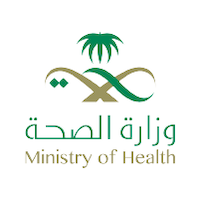The Saudi healthcare system has delivered more than 81,000 medical services to pilgrims since the beginning of the Hajj season for the year 1446 AH, through to the third day of Dhul-Hijjah. This comprehensive and well-coordinated effort, led by the Ministry of Health, aims to ensure pilgrims' access to high-quality medical care, strengthen the readiness of preventive and rapid response systems, and safeguard the health and safety of all pilgrims.
These services come as part of the Kingdom's broader health vision under the Health Sector Transformation Program and the Pilgrim Experience Program—two key initiatives stemming from Saudi Vision 2030—which seek to provide exceptional healthcare that ensures the well-being and comfort of pilgrims as they perform their religious duties safely and with ease.
Data released by the Ministry of Health indicates that nearly 49,000 pilgrims have received care at primary healthcare centers, while emergency departments have handled over 19,000 cases. Outpatient clinics received close to 1,000 patients, and more than 3,500 individuals were admitted to hospitals, including 1,730 in intensive care units. In addition, the healthcare system successfully performed 120 cardiac catheterization procedures and 11 open-heart surgeries.
Meanwhile, field medical teams responded swiftly and efficiently to 25 cases of heat exhaustion, supported by advanced equipment and specialized personnel as part of a highly responsive field health system, ensuring timely medical intervention to protect pilgrims during the performance of their rituals.
The healthcare system continues to operate at full capacity, guided by proactive planning and a fully integrated network of high-quality services. These ongoing efforts reflect the Kingdom's deep commitment to providing world-class medical care throughout the Hajj season and to ensuring the health, safety, and comfort of all pilgrims.
.png)
.png) 6 months ago
47
6 months ago
47








